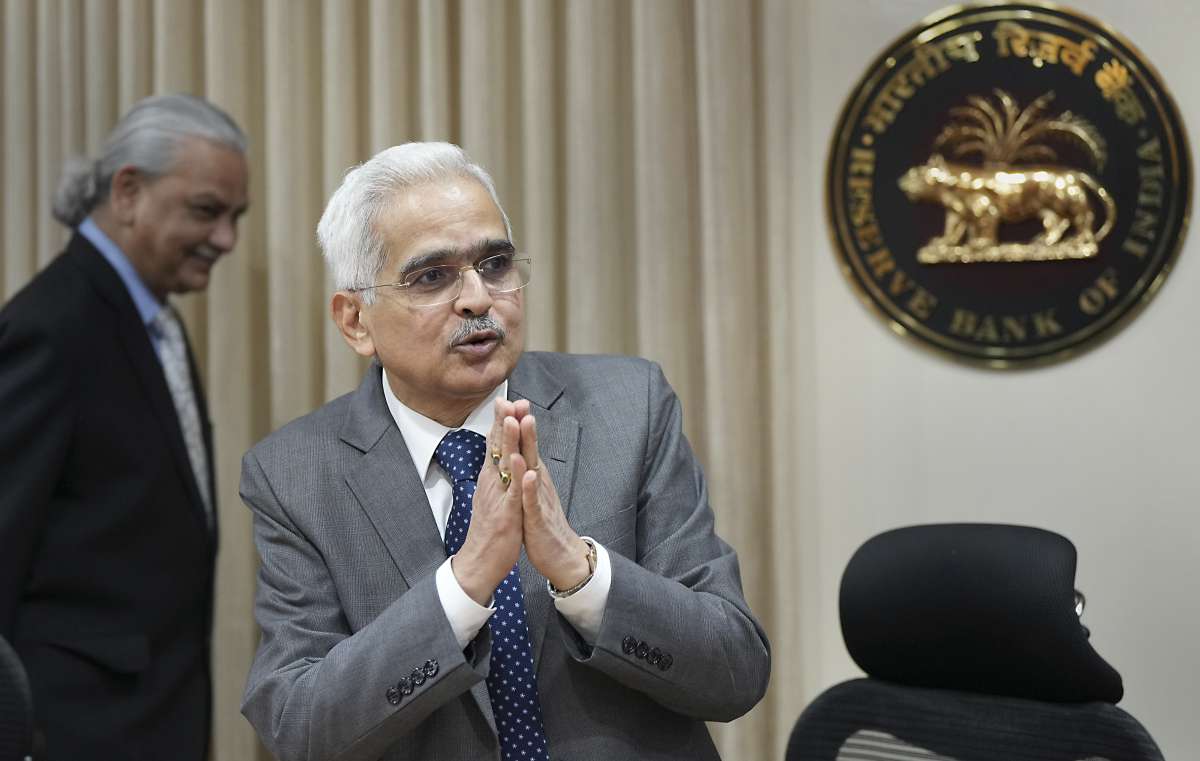)
Explained: Why did UBS acquire Credit Suisse for nearly $3.25 billion? How does this affect the bank’s future?
FirstpostLast week, the global banking world was rocked when stocks of Credit Suisse, the 167-year-old institution, fell to record lows and creating panic the world over. Now after a turbulent week, Switzerland’s largest bank, UBS, has agreed to buy longtime rival Credit Suisse for about $3.25 billion after emergency talks were held between the two banks and the country’s financial regulators. “It will also reinforce UBS’s position as the leading universal bank in Switzerland and further extend our position as the most important Swiss global bank.” UBS said in a statement: “The combination of the two businesses is expected to generate annual run-rate of cost reductions of more than $8 billion by 2027.” Axel Lehmann, Chairman Credit Suisse, speaks beside Colm Kelleher, Chairman UBS, during a press conference in Bern, Switzerland. Kelleher further said in the UBS statement, “This acquisition is attractive for UBS shareholders but, let us be clear, as far as Credit Suisse is concerned, this is an emergency rescue.” Explaining why the deal was important, Swiss president Alain Berset said, “Credit Suisse’ fate was not only decisive for Switzerland, for our companies, for private clients, for its own employees, but also for the stability of the entire financial system.” Echoing similar sentiments, Finance Minister Karin Keller-Sutter said the bankruptcy of Credit Suisse could have caused “irreparable economic turmoil”. “This has been an extremely challenging time for Credit Suisse and while the team has worked tirelessly to address many significant legacy issues and execute on its new strategy, we are forced to reach a solution today that provides a durable outcome.” Also read: As US banking crisis and global recession gain momentum, India provides an exception to the scenario Reactions from global banking systems The deal was welcomed by other banks across the world, with the Bank of England saying it welcomed the “comprehensive set of actions” set out by the Swiss authorities.
History of this topic

What Switzerland should have done to save Credit Suisse
Live Mint
UBS Capital Debate, Big Oil’s Buybacks: EMEA Earnings Week Ahead
Hindustan TimesSwitzerland lays out new ‘too big to fail’ rules in wake of Credit Suisse banking turmoil last year
Associated Press
UBS Weighs Credit Suisse China Stake Swap With Beijing Government
Live MintSwiss bank UBS reports pretax loss in 4Q, plans share buybacks after Credit Suisse deal wraps up
Associated PressSwiss financial regulator gets a new leader as UBS-Credit Suisse merger sparks calls for reform
Associated Press
Credit Suisse crisis: UBS Chairman points at failure of board, management
Live Mint
How did Credit Suisse collapse?
Live Mint
Behind Credit Suisse’s Fall: A Chairman’s Lasting Mark on the Culture
Live MintUBS reports huge 2Q profit skewed by Credit Suisse takeover and foresees $10B in cost cuts
Associated Press
UBS-Credit Suisse Merger: Hundreds Of Investment Bankers To Be Laid Off, Says Report
ABP News
UBS Credit Suisse merger: UBS to fire hundreds of Credit Suisse bankers — report
Live Mint
Credit Suisse-Archegos mess: UBS slapped with $400 million fine
Live Mint
UBS to cut more than half of workforce at Credit Suisse: Report
Hindustan TimesSwiss central bank urges review of ‘too big to fail’ bank safeguards after Credit Suisse debacle
Associated Press
UBS completes takeover of Credit Suisse in deal meant to stem global financial turmoil
Associated Press
UBS to impose restrictions on Credit Suisse bankers in final steps of takeover
Live Mint
UBS is wealth management behemoth after Credit Suisse takeover
Al Jazeera
Credit Suisse owes millions to Georgia’s billionaire ex-prime minister, court says
Associated Press
Credit Suisse directed to pay ex-Georgian PM $926 million by Singapore Court
Live Mint
CCI approves merger of Credit Suisse Group with UBS Group
Live Mint
Over $68 billion withdrawn from Swiss' Credit Suisse ahead of UBS merger
Hindustan Times
Credit Suisse sees outflows worth $69 billion in Q1
Live Mint
Over $68 billion withdrawn from Credit Suisse ahead of UBS takeover
Live Mint
Credit Suisse investors sue after facing billions in losses
Associated Press
Credit Suisse investors sue Swiss financial regulators for UBS takeover
Live Mint)
Credit Suisse bankers jostle for slim pickings at UBS, say sources
Firstpost
Credit Suisse accused of obstructing probe into Nazi accounts investigation
Hindustan Times
US Fed approves UBS-Credit Suisse merger. Details here
Live Mint
Credit Suisse rescue rebuked by half of Swiss parliament
Associated Press
Credit Suisse rescue package rejected by Swiss parliament
Hindustan Times
Swiss lawmakers pick apart Credit Suisse woes ahead of deal
Associated Press
Swiss lawmakers slams govt on UBS-Credit Suisse deal
Hindustan Times
UBS confident about Credit Suisse deal despite ‘huge’ risk
Associated Press
Swiss cut up to $66M in bonuses for top Credit Suisse execs
Associated Press
Swiss regulators defend rescue of Credit Suisse via UBS deal
The Independent
Swiss financial regulator defends Credit Suisse takeover by UBS
Hindustan Times
UBS Chairman’s top-secret prep paid off in Credit Suisse moment
Live Mint)
'Truly sorry': Credit Suisse chiefs apologise to angry shareholders
Firstpost
Credit Suisse investors slam failures as chairman apologizes
Associated Press
‘Your money is no longer safe in Switzerland,’ Credit Suisse ex-employee says
Live Mint
Credit Suisse chairman says ’sorry’ for bank failure, ’Only two options left...’
Live Mint
Swiss prosecutors probe Credit Suisse ahead of takeover; UBS to fire 30% staff
Live Mint
Swiss prosecutors probe Credit Suisse ahead of UBS takeover
Associated Press
UBS-Credit Suisse merger anticipated to cause over 30,000 jobs loss
Hindustan Times)
Up to 30% of jobs may go in UBS-Credit Suisse merger, say reports
Firstpost
Credit Suisse takeover hits heart of Swiss banking, identity
Associated Press
UBS brings back Ermotti as CEO with Credit Suisse deal ahead
Associated Press
US: Credit Suisse violates deal on rich clients’ tax evasion
Associated Press
UBS brings back former CEO with Credit Suisse deal ahead
The IndependentDiscover Related






















)







